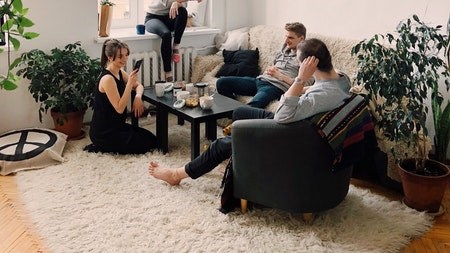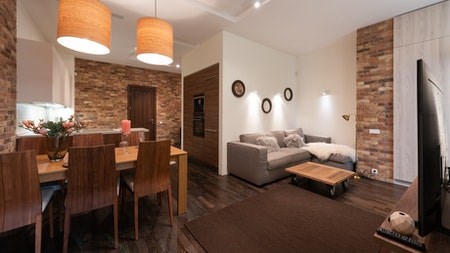Homeownership versus renting is an ever-present topical debate which doesn’t always have a categorical conclusion depending on where individuals are standing on the social and economic spectrum. Some of the motivating factors and considerations in this regard include, financial stability, a stable source of income, family status, career situation, etc.
For those who are financially stable with consistent source of income, a thriving career in a particular city or location and a family, buying a home is the ideal proposition. To the contrary, those with no regular income, trying to get employment and career stability and possibly single with no family dependants, renting may be the preferred option.
So, what are the benefits of renting?
• No Maintenance Costs or Repair Bills
One clear advantage that renters have over homeowners is that they have no maintenance costs or repair bills. When you rent a property, your landlord is responsible for all maintenance, improvement and repairs. If an appliance stops working or your roof starts to leak, you call the landlord (and hopefully it gets fixed).
• More Flexibility for Where to Live
Renters can live virtually anywhere, while homeowners are restricted to areas they can afford to buy. A home in the city might be out of reach for most home buyers, but it might be doable for renters. Although rents can be high in areas where home values are also high, renters can more readily find an affordable monthly payment than homebuyers.
• Decreasing Property Value
Property values go up and down, and while this may affect homeowners in a big way, it affects renters substantially less (if at all). The home value can impact the amount of property taxes you pay and the amount of your mortgage. In a rocky housing market, renters may not be as adversely affected as homeowners.
• Fixed Rent Amount
Rent amounts are fixed for the span of the lease agreement (marking them as a production cost). While landlords can raise the rent with notice, you can budget more efficiently since you know the amount of rent you are required to pay. Meanwhile, mortgages that have adjustable rates can fluctuate while property taxes can be increased.
On the down side, renting comes with its own limitations, such as:
• Deposit and monthly rent
When you first move into a rented space you have to pay a deposit, security and possibly the rent for a few months in advance. This is the most financially stressful part. After that you just have to make sure you pay your monthly rent.
• Home feel
When you’re renting a place, you don’t see that space like your home. You only see it as a temporary arrangement and as a space where someone else will soon come to live. You are therefore limited in terms of home upgrades you may want to undertake to create the ideal living space and home suitable for your needs. You can’t renovate, redecorate or change the layout like you could do if you were to be the owner.
• Stability
Another risk with a renting is that your landlord will usually have the ability to end your lease when it expires or simply give you a month's notice to vacate the property. This means that you may end up having to find a new place to live unexpectedly, incurring moving costs and having to deal with the stress of moving and the task of finding a new place to live.
• Relying on Your Landlord
If your landlord is responsible and easy to reach, it can be helpful as a tenant not to be in charge of maintenance, whether that means doing repairs, dealing with contractors or paying unexpected costs as things break down. But if your landlord isn't great at fixing things or taking care of them speedily, this can be a downside. It's often difficult to know before you move into a new place whether the landlord will stay on top of maintenance, and even if your landlord is good, buildings can change hands or other factors can impact your landlord's ability and desire to do prompt maintenance.
The list of pros and cons are many but the ones listed above should provide some broad outlook on the subject of renting.





